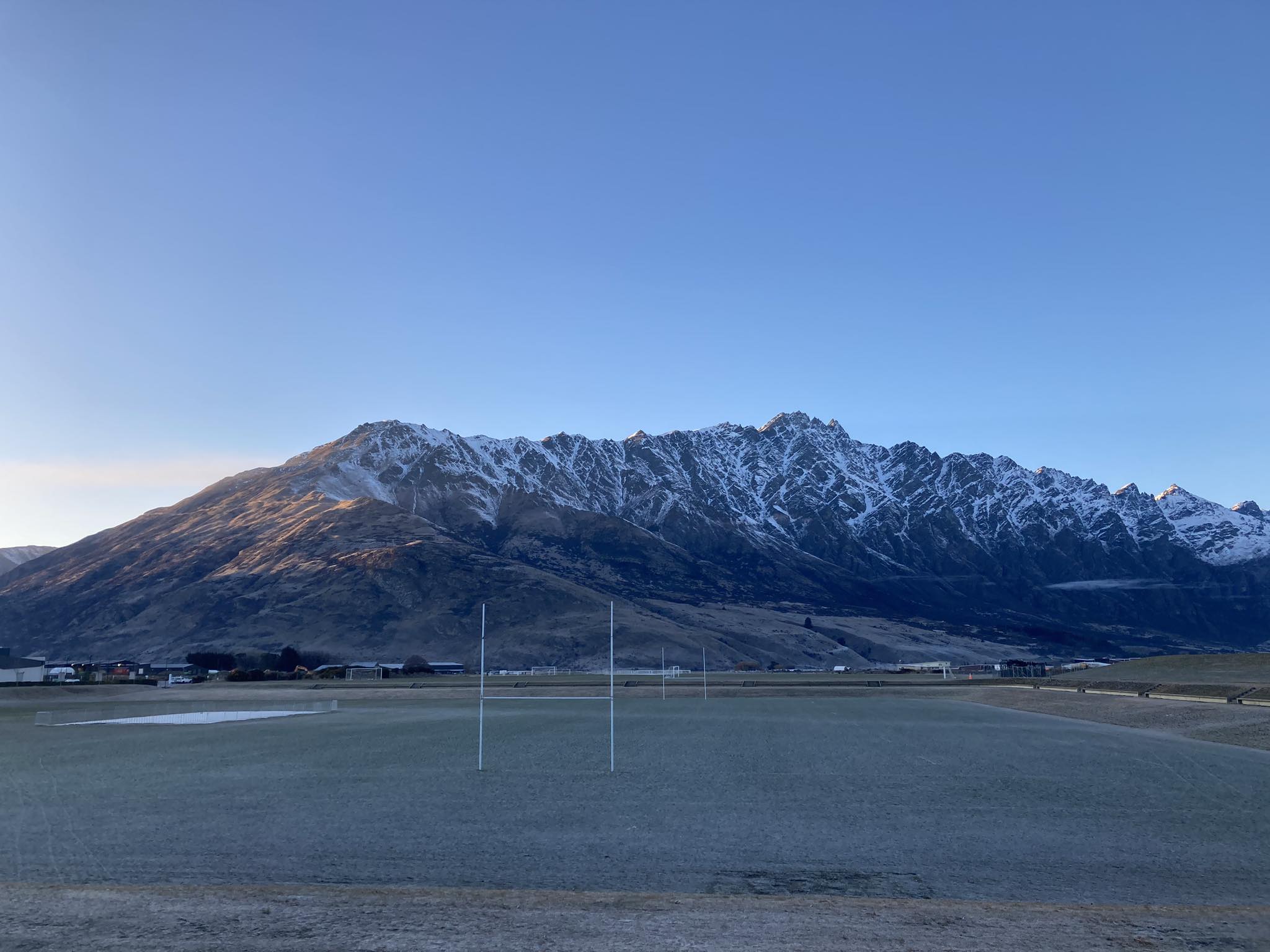
“People don’t get it,” my workmate said. “We’re in the news all the time for being one of the most expensive places in New Zealand to live, but people have no idea what that reality is like.”
“They think they do,” I said. “I thought I did before I moved here. But you can’t know until you’ve lived it. I don’t have a car —”
“Standard.”
“Half my income goes straight back out to pay rent —”
“Normal.”
“And absolutely nobody is surprised when I tell them I freelance on the side, because —”
“Yep,” my workmate agreed with a sigh. “Every little bit counts. That’s Queenstown Lakes District for you.”
Which is not to say it’s all bad. Far from it. I live in one of the most beautiful places on earth. There are lakes, mountains, and adventures waiting right on my doorstep. I have a job that is growing me every single day, both personally and professionally.

And yet… It’s interesting, isn’t it, the things we become normalised to?
As a single 30-something woman with a salaried office job, I live in a one-bedroom apartment. It came fully furnished. That was a good thing because after selling all my stuff to go travelling, I don’t own much of anything these days.*
*Except for an increasing collection of brightly-coloured trail shoes. Look, shoes are just tires for my feet, okay? Walking is the ultimate in sustainable transport.

When I tell my church ladies back in my hometown how much I pay in rent, they nearly faint. When I tell a friend in a city five hours away, she says, “Can you work remotely and move somewhere cheaper?” By contrast, when I mention it at the office, the response is a universal shrug.
One thing I learned while travelling the past couple of years is that you have to decide what’s important to you.
This means weighing up the pros and cons of certain money decisions to see if something is worth it. For me, it meant deciding not to tour the CN Tower in downtown Toronto (because it’s overpriced and not my thing) but happily dropping £30 at Newquay Zoo in Cornwall (because red pandas are my absolute favourite and I will spend hours watching them. In near-freezing winter drizzle. While clutching a coffee and trying not to shiver.)

via GIPHY
So, I’d had some experience with financial cost-benefit analysis over the last year or two. Having my own space is important to me, I know that. You could almost call it the most important factor. But what we want isn’t always what we can get, and expectations crash into reality eventually.
I looked around at what I would have to spend to get my own apartment… and then I did what any rational human being would do in a cost-of-living crisis, and looked at cheaper options.
Given the chronic housing shortage, there wasn’t much available. Sure, there were a few. Mostly rooms in shared flats, and by ‘room’ that might mean ‘a cheap garage conversion.’ They were all much further away than my apartment. And not that much cheaper. I could get a room for $450/week, but that would mean:
Compared to that, paying $600 a week for a one-bedroom apartment was Worth It.
The pros were numerous:
While the cons basically amounted to a single factor:
When I sat down and made the list, the decision was obvious. Would a room in a shared house 30 minutes away save me $150 a week? Yes. But it would cost me so, so much more than that in the long run: In furnishings, in setup costs, in commute costs and time, in social battery, in stress, in psychological and possibly physical wellbeing.
So, yes, I now spend half my weekly pay on rent…
I’m healthier. I have an active walking commute rather than passively sitting in traffic. My sleep hygiene is great since I can sleep longer instead of setting an early alarm to catch a bus. It’s easier to eat well because I walk past the supermarket on my route home instead of fast food places. And I don’t have flatmates running up the power bills or streaming movies 24/7, which means lower utility costs.
Do I spend a lot on rent? Unequivocally yes. There’s no dodging that one.
Do I save so much more on every other aspect of life, including exercise, mental wellbeing, and time? Also yes.
The big one: Is spending that much on rent worth it to me?
If you’ve read this far and you don’t have a concussion with short-term memory loss as a result of passing out and face-planting in a horse barn in the USA (ask me how I know), you’ll know the answer to this one.
Heck to the Yes, it’s worth it.
Rachel E. Wilson is an author and freelance writer based in New Zealand. She has been, variously, administrator at an ESOL non-profit, transcriber for a historian, and technical document controller at a french fry factory. She has a keen interest in financial literacy and design, and a growing collection of houseplants (pun intended).